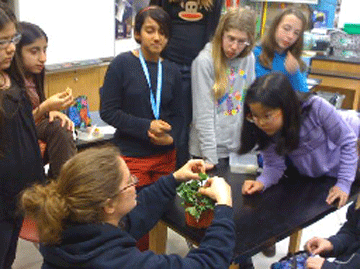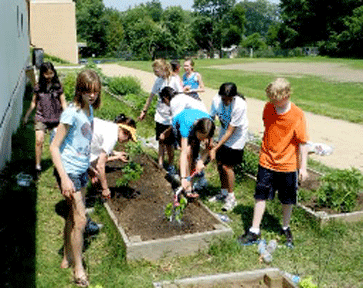2011 Arlington, Virginia, USA

When sixth grade science students at H-B Woodlawn Secondary Program examined stream conditions at Gulf Branch in Arlington, they noticed that the vegetation alongside the stream was dominated by invasive species, including garlic mustard along the paths, Japanese honeysuckle growing out of logs, and English Ivy, its vines snaking their way up trees, on the ground and almost everywhere else. Following up with the county’s invasive plant coordinator, they arranged to join in a garlic mustard pull in the park and tour a native plants demonstration garden, where they helped plant native honeysuckle.

Since many local residents aren’t aware of the problem and don’t know native plants from invasive ones, the students decided to plant a demonstration garden at school and develop an elementary-school teaching packet that could be used to show how invasive plants c affect the Chesapeake Bay Watershed. Nutrien provided the $125 needed for plants, soil amendment, and engraved plates identifying the species planted, all of which cost less than the students’ projected budget of $245.
At the Caring for Our Watersheds finals, held at the Earth Force Youth Summit at Marymount University, H-B Woodlawn students won first place for their project, entitled “A Garden to Teach Others.” Quoted in the Arlington Connection newspaper, the group’s president, Zoey Mondshine, expressed the team’s feelings, saying, “[w]hen we won, it was just really exciting because we put a lot of effort into this. It’s been a lot of fun and I’m glad we participated in this.”